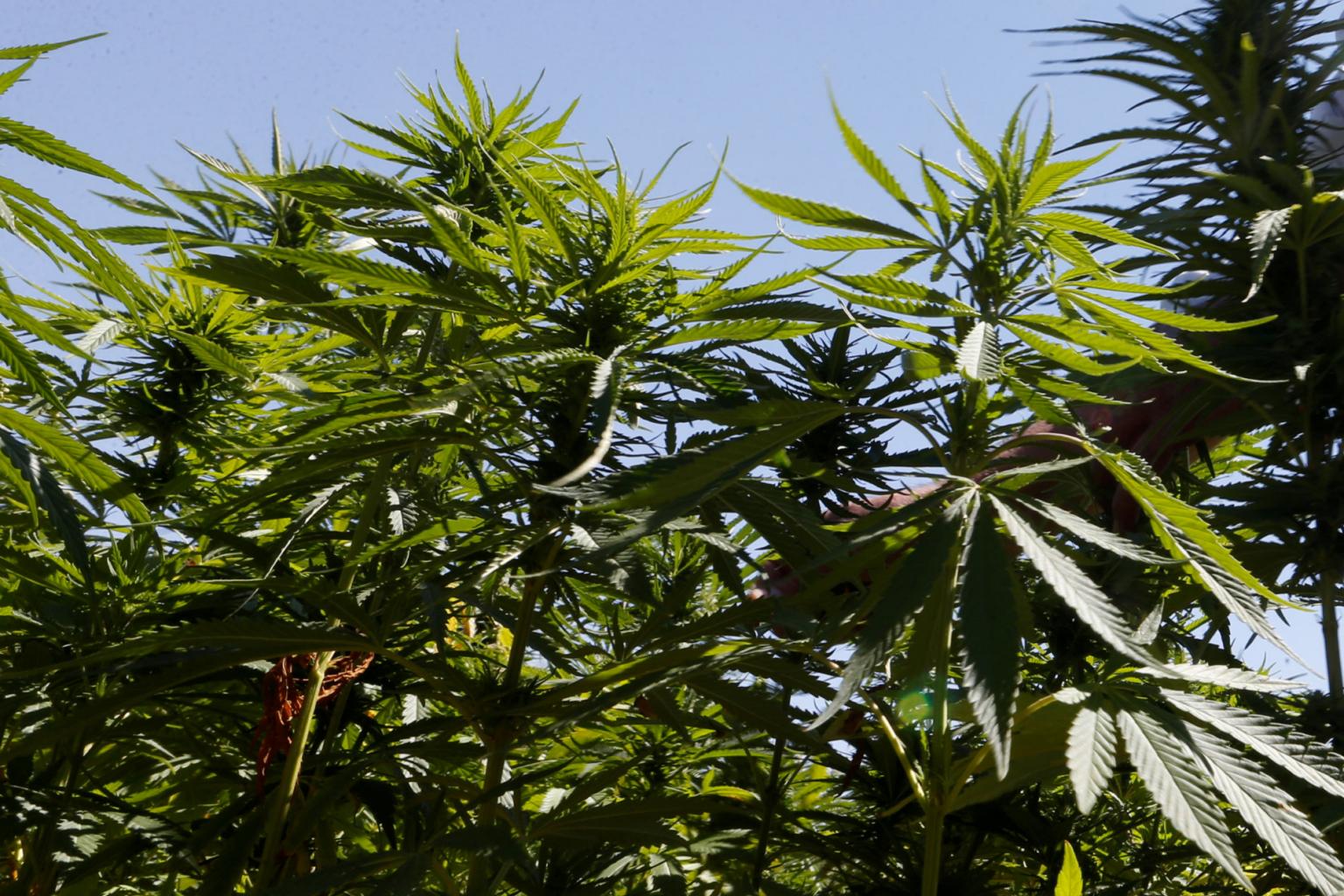Thai govt's pharmaceutical agency officially opens first legal greenhouse to grow cannabis
Sign up now: Get ST's newsletters delivered to your inbox

The plantation will reportedly be equipped with advanced hi-tech closed-system aeroponics farming technology, as well as a high-security surveillance system.
PHOTO: REUTERS
Follow topic:
BANGKOK (THE NATION/ASIA NEWS NETWORK) - Thailand's first legal cannabis plantation was officially opened by Government Pharmaceutical Organisation (GPO) on Wednesday (Feb 27), as the authorities work towards developing cannabis-based medicines that are affordable for all patients.
Public Health Minister Dr Piyasakol Sakolsatayadorn told the opening ceremony at Thailand's first cannabis indoor farm that the country has now taken the first and crucial step towards developing Thailand's own patented cannabis medicines.
Though the government recently legalised medical cannabis, until now the country has lacked recognised cannabis medicines of our own, he told the media at the GPO facilities in Pathum Thani's Thanya Buri District.
"Five years period from now will be the decisive moment for our country to determine whether we were able to catch up with the advanced medical cannabis innovation and technology of other countries and the transnational pharmaceuticals giants, and enjoy cheap and widely accessible cannabis medicines.
"Or did we fail to develop our own medicines from cannabis and have to rely on the foreign pharmaceutical firms for expensive imported cannabis medicines?" Dr Piyasakol said.
"With our new indoor cannabis farm, invested in and operated by GPO, we can harvest high-quality medical grade cannabis," he said. The harvested plants will be used by the GPO and its allied academic institutes to extract cannabis substrates to further medical research and produce affordable cannabis oil sublingual drops for patients.
GPO managing director Withoon Danwiboon said the new indoor plantation is the first legal cannabis farm in Southeast Asia. It is equipped with advanced hi-tech closed-system aeroponics farming technology, as well as a high-security surveillance system.
The technology will ensure the resulting crop meets the high medical-grade standard required to manufacture medicine from the plants. Dr Withoon said the GPO has invested 100 million baht (S$4.29 million) in the project to construct the closed-system farming facility and to install the supporting system for a 100 sq m indoor plantation.
"Because we need a very high quality and organic cannabis for our research and development, we have to spend a lot to create a closed environment farming facility," he explained. "This is to assure that our cannabis crop will be chemicals free and safe for producing medicines."
Dr Piyasakol cautioned that Thailand was far behind other countries and many transnational private pharmaceuticals companies in term of the medical cannabis innovation and technology.
The future of the country and many patients who require cannabis-based medicine for their treatment, are at a great risk of monopolisation of the market and would suffer from very costly drugs, he said.
In order to avoid being a victim of monopolisation, it was very important for the authorities and all related agencies to swiftly invest in medical cannabis research and development, he emphasised.
The next five years are particularly vital for the nation to develop its own medical cannabis innovations and fill the technological gap in cannabis medicine, Dr Piyasakol said.
The amended Narcotics Act decrees that only official agencies and their partners are allowed to grow cannabis for producing medicines in the first five years after legalisation.
The law aims to prevent private companies from taking over the cannabis farming business in Thailand.
The agencies, which are allowed to legally farm cannabis for medical purposes, will have to comply with strict security rules and meet very high standards to ensure an organic crop that can be used to create medicine.
The strict regulations for registering a cannabis farm has already caused complaints from traditional Thai practitioners and some patients.
But GPO deputy managing director Sirinuch Cheewanpisalnukul said that the agency was not monopolising cannabis farming, as other academic institutes are welcome partner with it to develop farming techniques and medicines.

